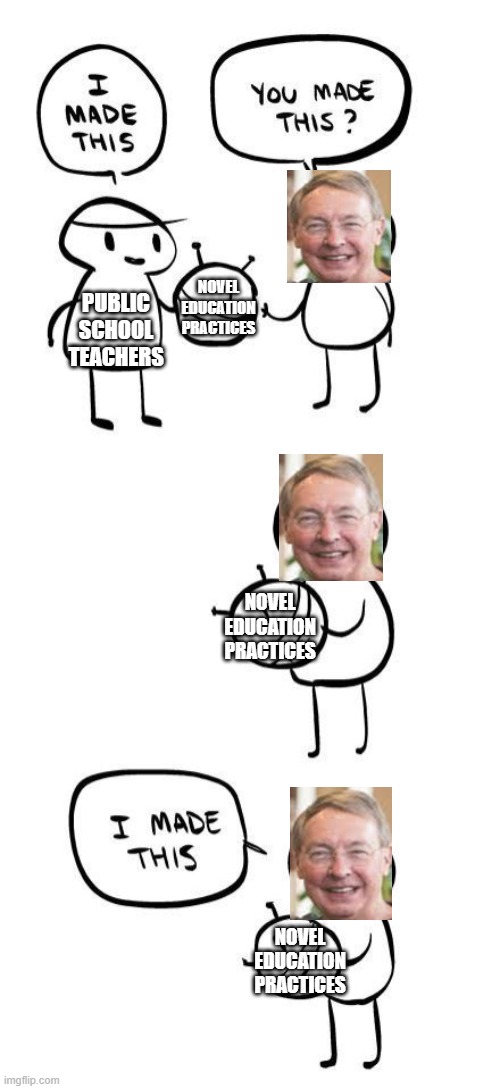Innovation is a fantastic word. It is very elastic. It can be used to mean pretty well anything, but always seems to correspond to some new toy, gadget, or shiny object that doesn’t actually change all that much, but is deemed absolutely essential to a person’s full actualization in the digital social world we inhabit. Every year we hear about a new iPhone – this time it’s bigger! This time it doesn’t have a headphone jack! (wow so courageous Apple, you must be very proud of your multimillion-dollar government contracts – oops sorry did I say that part out loud? I forgot you wanted to be seen as a built from nothing but gumption, completely private enterprise). But does a new iPhone really tick the box of innovation? What’s more, why is it that we are constantly berate with the conceit that only private business is capable of ‘innovation’?
The documentary Most Likely to Succeed, as per our recent viewing, peddles the same conceit. Throughout the documentary, armchair experts (notably almost none of them are educators) wax poetic about the failures of the standardized education system that has been run into the ground by ‘the government’. While many of the criticisms are well warranted such as the ills of a hyper focus on standardized testing and the enforcement of a one-size fits all model of rote memorization in order to get into college, the solution that the documentary offers begs its own question. For the director, (and head producer, billionaire owner of charter school management company, Ted Dintersmith – not a teacher) private charter schools can innovate because innovations is in the domain of the private sector. The final lines of the documentary warn us not to let federal or state governments interfere with education, implicitly stating that it is better left in the hands of the private sector. Importantly however, there is absolutely no engagement with the structural factors that have inhibited public education in the United States, nor is there an argument as to why only charter schools seem to be able to utilize novel organizational structures and new educational technologies.
I certainly believe that education systems need an overhaul. A cursory overview of any critical education periodical will show you the myriad ways that the current American structure (and in many ways the Canadian) does not work well for children and youth both in terms of what we know about knowledge and personal development, and in terms of preparing people for critically engaging in a complicated social world dominated by ruthlessly exploitative capitalism, violent white supremacy, resurgent fascism, and domineering cisheteropatriarchy. Innovation would be grand! I’d love to see some innovation! But knocking down the walls and bells in one kind private school that increasingly acts as a vehicle of resegregation is not how we achieve it. Nor is exploiting teachers on precarious, single year contracts. We achieve it by banishing private capitalist interests from education, by communalizing the social work of teaching, by funding public education and setting the space for autonomy in the classroom. Until we can do this, the idea of innovation in education will be as vapid and empty as it is in the tech world. Screw innovation, give me justice.
